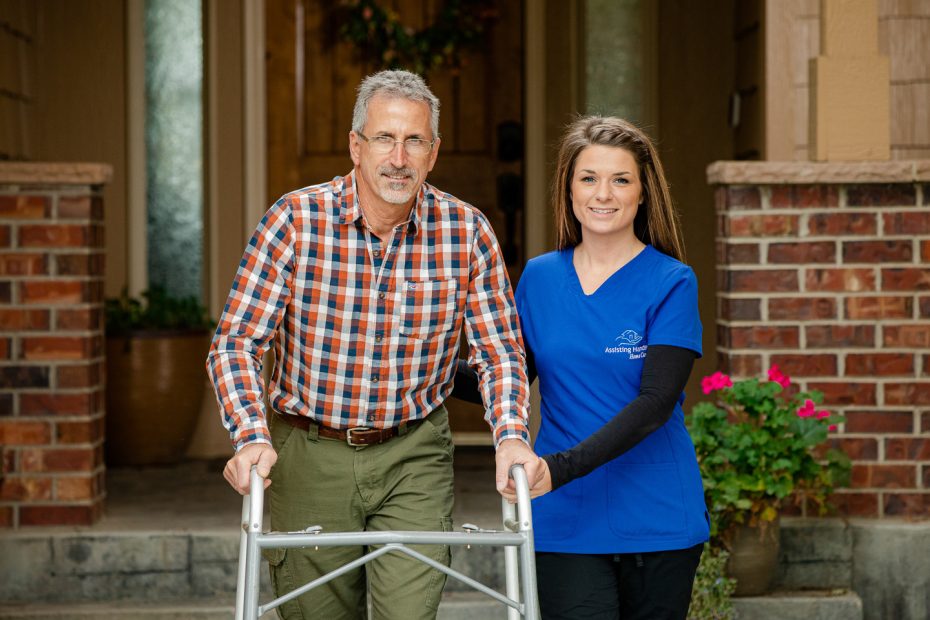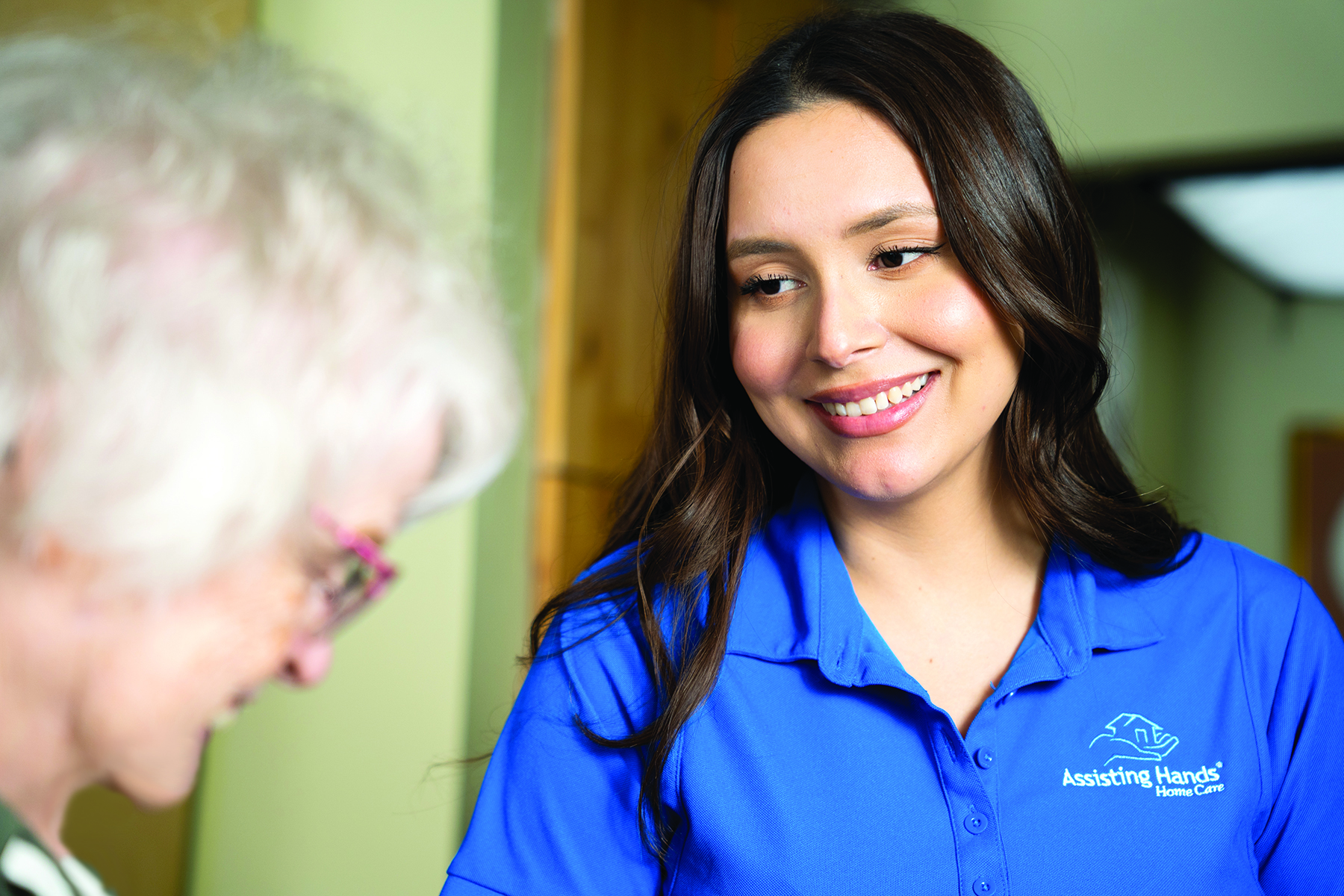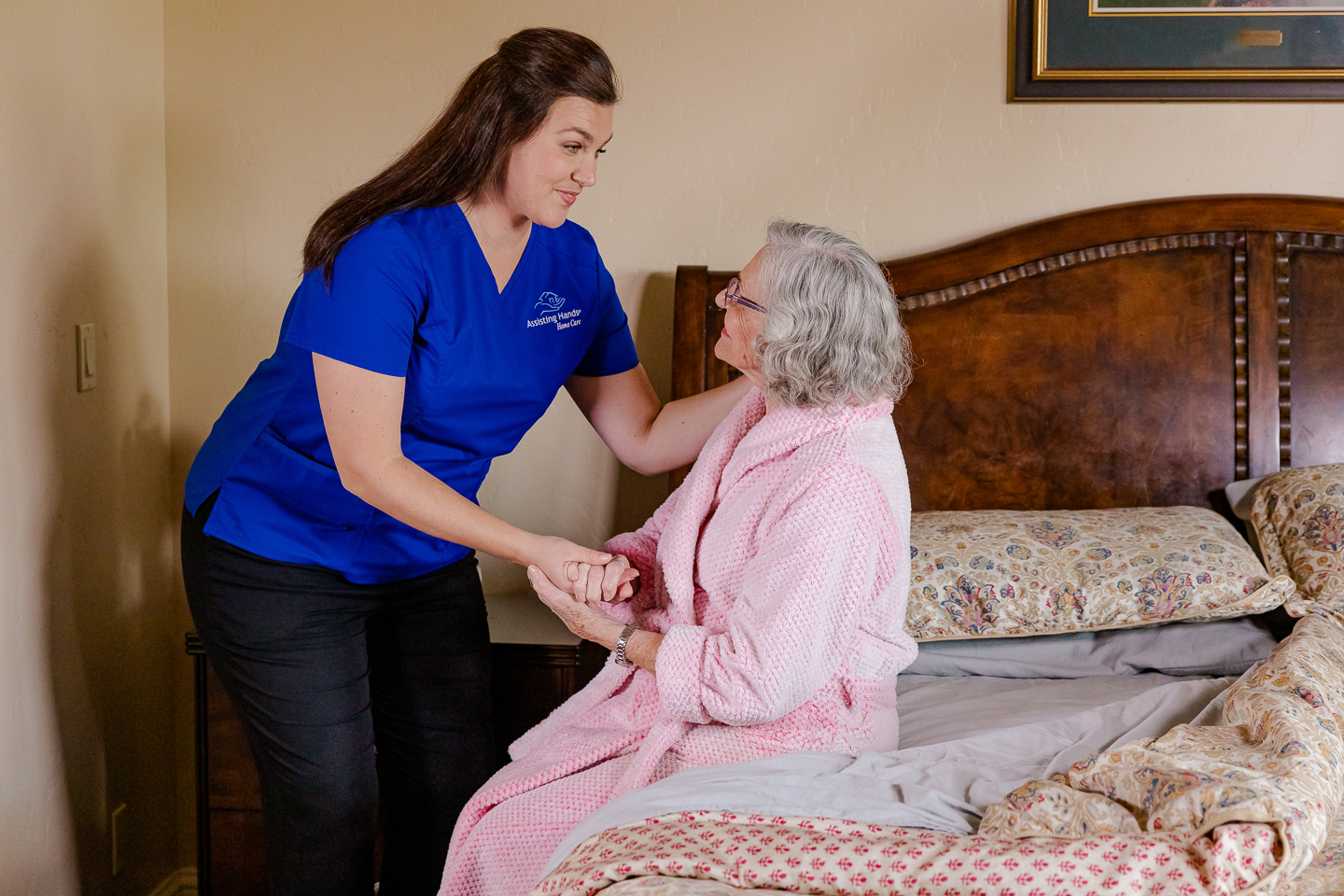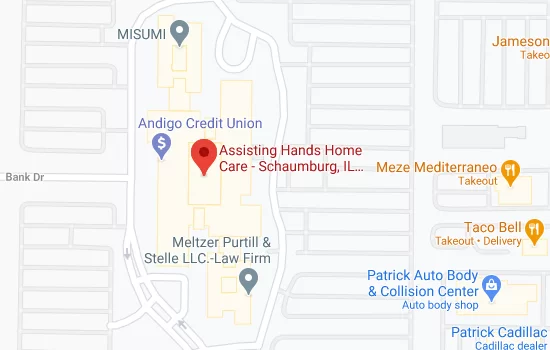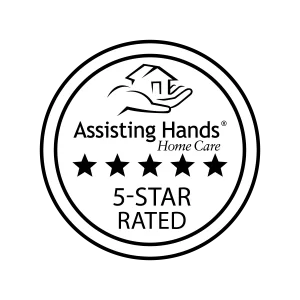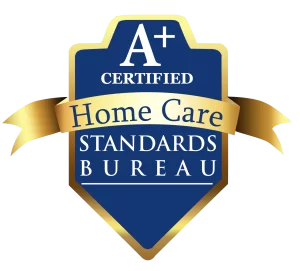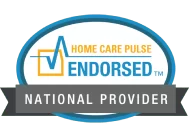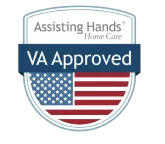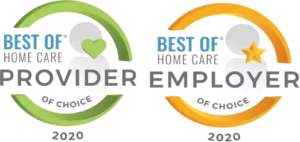Once it becomes clear that your elderly loved one requires additional help, you will be faced with several options for providing them the assistance they need. One option your family can turn to is in-home care provided by a professional caregiver.
There are many different types of home care, each of which has varying costs and may provide an elder with multiple levels of support. All home care services can be sorted into one of two categories:
- Non-Medical Care: The vast majority of in-home care is non-medical in nature and includes such services as companionship, housekeeping, meal preparation, transportation, shopping, money management, as well as assistance with activities of daily life (ADL)—bathing, eating, toileting, dressing and other personal care tasks. Non-medical care is typically provided by either a homemaker or a home health aide.
- Medical Care: Medical home care must be performed by a licensed medical professional (i.e. a certified nurse or a therapist). Dispensing medication, wound care, and physical or speech therapy all fall under the umbrella of medical home care services, and require a prescription from a doctor.
Your loved one may need only one type of care or a combination of both, depending on their health concerns and the availability of other family members to assist them with day-to-day activities.
An agency or an independent caregiver?
What is the difference between a licensed home care agency and an independent caregiver who contracts directly with a senior and their family?
In the United States, there are about 33,000 licensed home care and hospice providers that employ over two million nurses and aides. There are also an untold number of independent or “freelance” caregivers.

Caregivers who work with an agency are often more expensive per hour than independent caregivers, but they receive special training in elder care and are bonded and insured by the organization they work for. The home care company is responsible for managing their employees’ schedules and making sure the people taking care of your loved one are a good fit when it comes to personality and aptitude. If, on the other hand, you have a friend or acquaintance with caregiving skills, but they don’t work with a licensed company, it may seem advantageous to hire them rather than let a complete stranger into your loved one’s home. However, there are a few additional considerations to be aware of when dealing with independent caregivers.
Freelance Caregivers
Freelancing caregivers who don’t work for an agency may or may not be trained in important elder care skills, such as CPR or how to transfer an adult in and out of bed. Hiring an independent caregiver may also put you and your loved one on the hook for employment taxes and insurance. You may also encounter liability issues because many freelance caregivers are uninsured.
There will also be extra steps to take, depending on whether you decide to hire them as an employee or a contractor. Hiring a caregiver as an employee means you’ll have to shell out funds for Social Security, unemployment insurance and income taxes. A contractor, on the other hand, foots the bill for their own taxes. However, if you pay a contractor more than $600 in a single year, you’ll need to file a 1099 form with the IRS.
Either way it’s best to seek out the services of a finance professional, such as an accountant or a lawyer, to help you legally navigate the world of freelance caregiving.
A Shift Caregiver or a Live-In Caregiver?
If your loved one requires more than a few hours of care per day, you’ll also need to understand the distinction between caregivers who work in shifts and those who are “live-in” caregivers. As the name implies, a live-in caregiver resides in an elder’s home. Shift caregivers, on the other hand, leave after their designated care period is over.
Typically, if you want to hire a live-in caregiver, you’ll have to provide them with their own separate bedroom and living space, and you may need to pay for their meals as well. A caregiver who lives in a senior’s home isn’t considered on call 24/7—they will require at least eight hours of sleep each night and will periodically go on vacation.
Deciding which situation – live-in or shift – is best for your loved one should be based on several factors:
- How many hours of care is needed: Elders who need more than 12 hours of care per day may benefit from the services of a live-in caregiver.
- Does your loved one sleep through the night: Seniors with dementia and those plagued by Sundowner’s syndrome may be better off with shift workers, who never sleep while on duty. Live-in caregivers will need a full night’s sleep, meaning they won’t be able to look after your loved one all the time.
- How your loved one feels about having multiple caregivers: The primary benefit of a live-in caregiver is that they provide an elder who needs many hours of care with a consistent presence. Shift caregivers often work in blocks of eight or 12 hours, meaning multiple people may come and go each day, adding to your loved one’s stress and confusion.
- Which option is most cost-effective: Cost is a huge factor when searching for home care. Live-in caregivers tend to cost more than shift caregivers and there are additional security considerations to take into account.
5 Myths of Home Care for the Elderly
- Professional caregivers don’t really “care:” Home health workers are trained to connect and engage with their elderly care recipients.
- Home care won’t work for someone who needs 24/7 help: Home care services can range from a few hours a week to round-the-clock care.
- There’s no need to hire an outside caregiver if there’s a family caregiver: Professional helpers can provide a much-needed source of respite care for family caregivers.
- My loved one can’t afford home care: The cost of hiring a professional caregiver varies depending on where an individual lives and how much care is needed, and some seniors can qualify for government financial assistance.
- Professional caregivers are abusive: There is always the danger of abuse or theft when a stranger is taking care of an elder, but these are uncommon occurrences, especially if the individual is employed by an agency.
Contact Us
If you have any questions regarding home care, please, contact Assisting Hands Home Care at (224) 258-0736
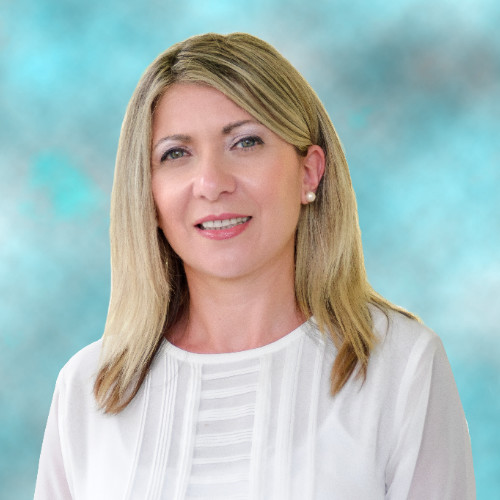
Daniela has master’s degree in electronic engineering with a pedagogical specialty and master’s degree in marketing management.
After completing her schooling, Daniela worked at a hospital for 6 years as the Director of Business Marketing Development and Public Relations.
Starting Assisting Hands Home Care
Daniela spent more than 14 years as the Assistant Vice President of a national bank before becoming a co-owner of Assisting Hands Home Care of Schaumburg.
Her background in public relations and marketing along with her personal experience caring for her mother motivates Daniela to be passionate about helping families in the Schaumburg, IL area find exceptional caregiving services for their elderly loved ones.
Besides providing home care, Daniela enjoys giving back to the community in her free time, supporting various events at St. Peter Parish in Geneva, IL such as fundraising, school projects, charity events, and more. She also enjoys volunteering for the Humanitarian Service Project in Carol Stream, IL. This organization provides seniors with meals as well as food and supplies for children living in poverty.

